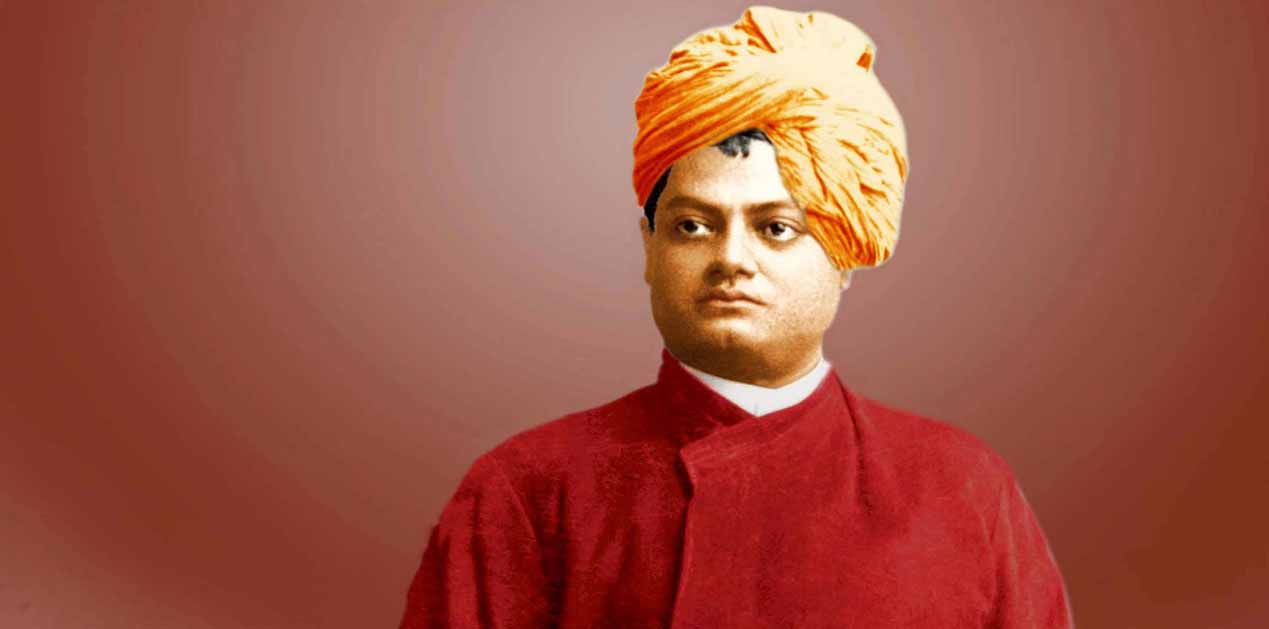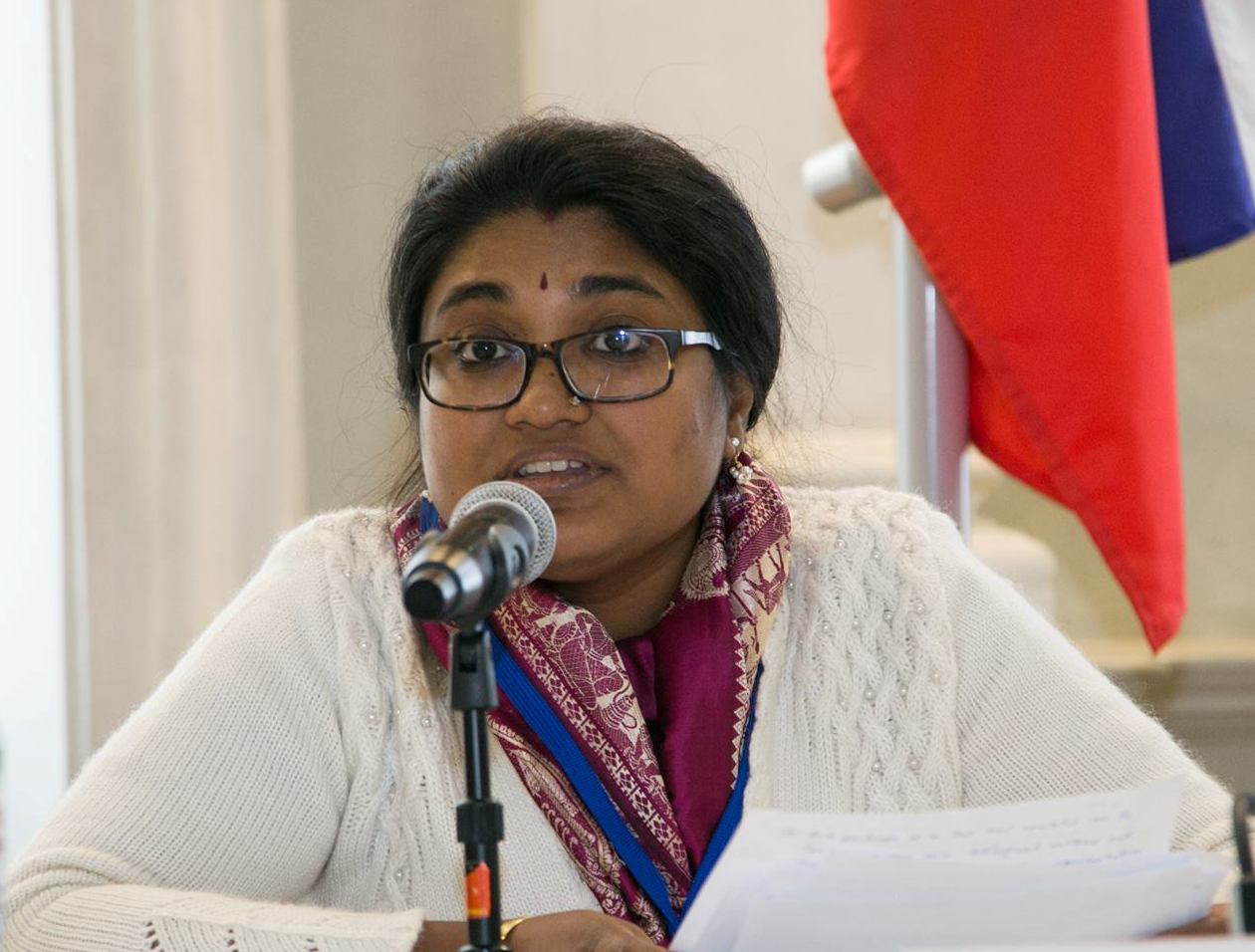In December 1892, Swami Vivekananda was visiting Trivandrum, the capital of the then Princely State of Travancore. This was right before his visit to Kanyakumari, where, during the Christmas of 1892, sitting on “the last bit of Indian rock” 1, he meditated and meditated and saw clearly the future India resplendent in all her glory, as also he saw the immediate course of action to be taken to uplift the condition of the country. In Trivandrum, he was the guest of Prof. Sundararama Iyer, the tutor to the First Prince, the nephew of the Maharaja of Travancore. Swamiji stayed with Prof. Iyer for nine days. K S Ramaswami Shastri was the son of Sundararama Iyer. He was then a college student. He writes in his reminiscences that one day Swamiji said to him and his father:
“Practical patriotism means not a mere sentiment or even emotion of love of the motherland but a passion to serve our fellow-countrymen. I have gone all over India on foot and have seen with my own eyes the ignorance, misery and squalor of our people. My whole soul is afire and I am burning with a fierce desire to change such evil conditions…If you want to find God, serve man. To reach Narayana you must serve the Daridra Narayanas—the starving millions of India…”2
The first condition for practical patriotism is feeling for the Indian masses. In 1894, he wrote from New York to Alasinga Perumal and his other Madras disciples: “…all love is life,…all selfishness is death…Ninety per cent of human brutes you see are dead…for none lives, my boys, but he who loves. Feel, my children, feel; feel for the poor, the ignorant, the downtrodden, feel till the heart stops and the brain reels and you think you will go mad—then pour the soul out at the feet of the Lord and then will come power, help, and indomitable energy.” 3
But he also said that feeling alone will not do; feeling has to be followed by thinking and doing. One might be overwhelmed with feeling, yet incapable of doing anything from the practical point of view. The next condition after feeling is the ability to think, to work out a plan to execute. Again, one should not be content with merely conceiving a plan. The final step is actually executing the plan. One has to take the whole responsibility on one’s shoulders. Hence Swamiji’s counsel: “Work as if on each of you depended the whole work. Fifty centuries are looking on you, the future of India depends on you. Work on.” 4 And this work for India is not a favour, but an obligation: “So long as the millions live in hunger and ignorance, I hold every man a traitor who, having been educated at their expense, pays not the least heed to them!” 5
But what are the qualities that one must cultivate in order to work selflessly for the nation? Swamiji’s prescription was: “Three things are necessary to make every man great, every nation great: 1. Conviction of the powers of goodness. 2. Absence of jealousy and suspicion. 3. Helping all who are trying to be and do good.”6 He exhorted his disciples to “Be pure, staunch, and sincere to the very backbone, and everything will be all right.”7 He especially warned against jealousy, which he found to be the central vice of every enslaved nation. He exhorted: “Give up jealousy and conceit. Learn to work unitedly for others. This is the great need of our country.” 8 Most importantly, all talk has to be backed by real work. In 1895, he wrote to another disciple: “Follow me, if you will, by being intensely sincere, perfectly unselfish, and, above all, by being perfectly pure. My blessings go with you. In this short life there is no time for the exchange of compliments. We can compare notes and compliment each other to our hearts’ content after the battle is finished. Now, do not talk; work, work, work…”9
What he wanted was bold and adventurous spirits to work for India. On 23 December 1895, he wrote to his brother disciple, Swami Saradananda: “…I want bold, daring, adventurous spirits to help me. Else I will work alone.” 10 Anybody who reads Vivekananda’s letters to his brother disciples and to his disciples like Alasinga and others about what is to be done for India, cannot escape imbibing his fire. And his special blessing attends anybody who wishes to follow him and lay down his/her life for serving India: “That you may catch my fire, that you may be intensely sincere, that you may die the hero’s death on the field of battle—is the constant prayer of VIVEKANANDA.” 11
Endnotes
- On 19 March 1894, Swamiji wrote to his brother disciple Swami Ramakrishnananda (Shashi) about his experience at Kanyakumari: “My brother, in view of all this, specially of the poverty and ignorance, I had no sleep. At Cape Comorin sitting in Mother Kumari’s temple, sitting on the last bit of Indian rock—I hit upon a plan…” See Letters of Swami Vivekananda,Kolkata, Advaita Ashrama, 2013, p. 81.
- The Life of Swami Vivekananda. By His Eastern and Western Disciples, Kolkata, Advaita Ashrama, 1989, p. 338.
- Letters, p. 173, emphasis in original.
- Ibid., p. 175.
- Ibid., p. 147.
- Ibid., p. 67.
- Ibid., p. 146.
- Ibid., p. 224.
- Ibid., p. 196.
- Ibid., p. 274.
- Ibid., p. 196.
(The paper is the author’s individual scholastic articulation. The author certifies that the article/paper is original in content, unpublished and it has not been submitted for publication/web upload elsewhere, and that the facts and figures quoted are duly referenced, as needed, and are believed to be correct). (The paper does not necessarily represent the organisational stance... More >>
Image Source: https://www.sadhviji.org/wp-content/uploads/2018/11/vivekananda.jpg










Post new comment